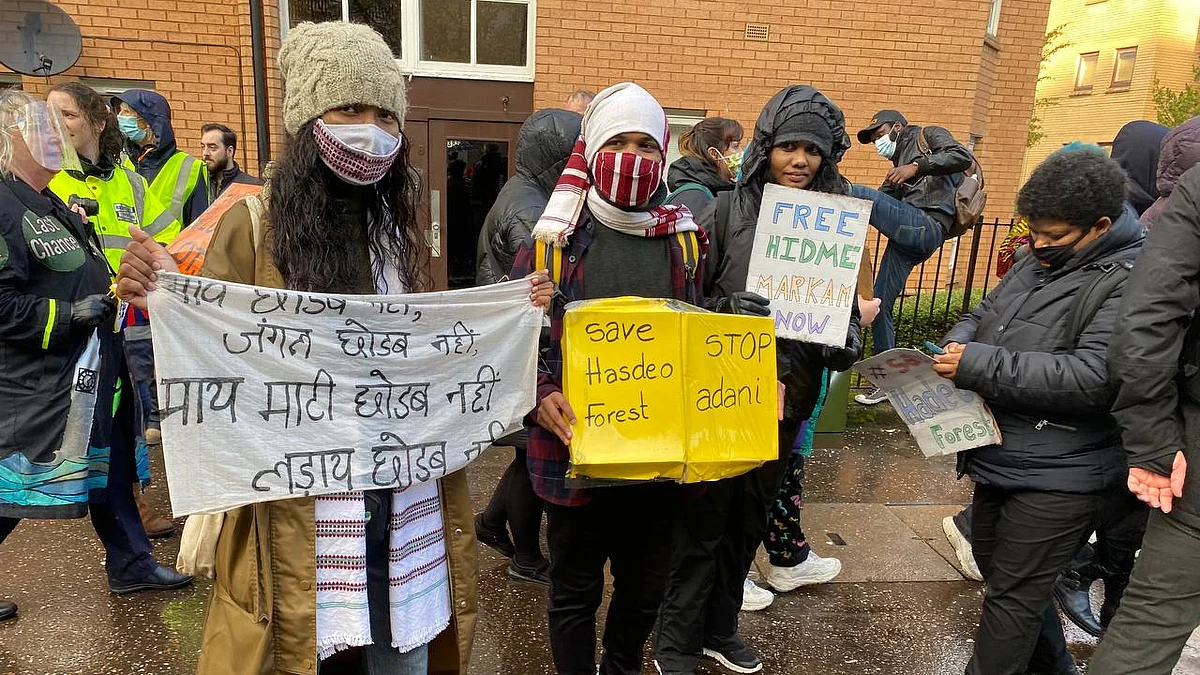Adivasis from India protest in Glasgow against coal mining at COP26
Adivasi activists from India took part in protests at Glasgow and demanded a judicial enquiry into subversion of the Gram Sabha mechanism and implementation of PESA and Forest Rights Act

Protesting against the expansion of coal mining that the Indian government is planning, especially in the Hasdeo Arand region of Chattisgarh, where stage two clearance has been granted for mining projects, representatives of India’s Adivasi community have reached the streets of Glasgow to protest at the COP26 Summit.
One such protestor, Shubham Tigga, pointed out that the “Hasdeo Bachao Andolan” was started ten years ago, when stage one clearance was granted for coal mining in the region. And now, a decade later, even after massive protests by Adivasis who marched over 300 kms for ten days, and protested in different cities against the project, forest clearance has been sanctioned. “This comes in the wake of COP26 where PM Modi has committed to reducing carbon emission and intensity.”
This seems more than just a bit hypocritical to Alice Barwa. She says, “COP26 aspires to achieve net-zero by reducing carbon emission and to work in synergy with the local communities but are they listening to the local indigenous voices?” It is a matter of concern that governments are still speaking on the behalf of businesses that fund the exploitation and displacement of the indigenous people, Barwa fumed.

According to a report by Survival International, there are about five billion tonnes of coal in the Hasdeo forest that multinational companies are after. But for the local people, if this land is dug up, their sources of livelihood will be is gone. “The loss of this land cannot be compensated with anything. Our people are losing their agency over themselves and their lives,” says Barwa.
She explains that unlike mainstream economy, Adivasis depend on minor forest produce and small-scale production for their day-to-day needs. But they aren’t protesting just for their livelihoods. These forests also form part of their culture and ecology, the loss of which burdens them with an “immense identity crisis”.
According to Tigga, their demands are simple. They want the PESA Act, 1994 and Forest Rights Act to be democratically implemented, and they want a judicial enquiry conducted into the subversion of the Gram Sabha mechanism. What they hope for is an inclusive approach to environmental and social justice. And until then, their protest at Glasgow will continue with other communities who want the voices of marginalized voices heard in matters of climate justice.
Follow us on: Facebook, Twitter, Google News, Instagram
Join our official telegram channel (@nationalherald) and stay updated with the latest headlines
